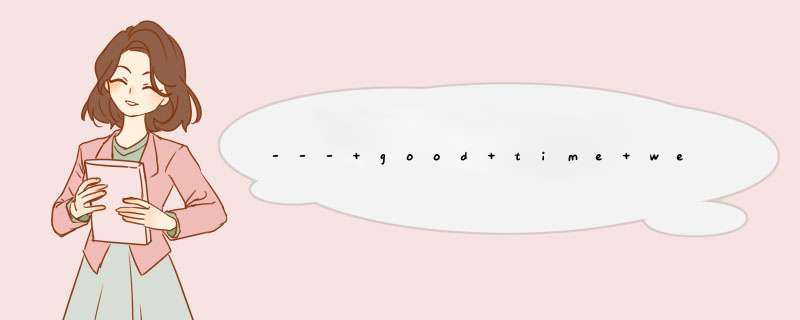
| C |
| 试题分析:感叹句主要有what和how构成: 1、what修饰名词或名词短语,有以下两种形式: 1 What+a(an)+(形容词)+单数可数名词+主语+谓语!或是:What+名词词组+主语+谓语! 2 What+(形容词)+可数名词复数或不可数名词+主语+谓语! 2、How引导的感叹句。 how用来修饰形容词、副词或动词。其结构是:How+形容词(副词)+主语+谓语! 根据下文good time,可数名词单数,故用what a。 下文such是形容词,修饰名词,意思是如此的这样的;so是副词,修饰形容词,副词,意思是如此这样。exciting party中心词是party可数名词单数,故用such,选C。 点评:当how修饰动词时,动词不跟着感叹词提到主语之前。 what与how引导的感叹句,一般情况下可以相互转换,转换后意义不变。在口语中,感叹句的主语和谓语常常省略。形容词和副词的区别主要是在句子中作为句子成分的不同,虽然都可以放在动词后面,但是形容词是放在系动词后面做表语,副词放在实意动词后面做状语。形容词作为修饰词只能用作定语,修饰名词。而副词除了修饰动词意外,还可以修饰副词。 |
yes的另一种英语说法具体如下可供参考:
一、简述
1、OK这个词有着久远且复杂的历史,不过我们可以知道这个词最早是美国人在使用;Okey-dokey算是OK的弟弟了,虽然有点傻气,不过却带有轻松愉快的感觉,是个积极的词语。
2、如果你想在自己的回答中加入一点古典成分,那你就可以试试yea了,与此同时,yea在美国国会中也有投赞成票的意思,用yea的话感觉既古典又庄严呢;Uh-huh是一种常用的比较含糊表示yes的词,一看到这个词,可能大家脑中就会浮现出“耸肩”的样子。
3、Aye aye有一股浓浓的海和盐的味道,因为我们经常会在**里听到船员们回答船长“aye aye,Captain”。当然,只用一个aye也是可以的,不过海味就不太够了;By all means有着“务必、尽一切办法”的意思,有一种在恳求对方尽一切方法完成自己请求的语气。
4、Affirmative这个词本身就有“肯定的”意思,用来表示肯定回答再合适不过了。大概是受南美人的影响,也有in the affirmative(表示赞成)的用法;在无线电通信的时候,人们一般用roger来表示“收到”,在平常,大家也是可以用的。
二、英语
1、英语(英语:English)属于印欧语系日耳曼语族西日耳曼语支,最早被中世纪的英国使用,并因其广阔的殖民地而成为世界使用面积最广的语言。英国人的祖先盎格鲁部落是后来迁移到大不列颠岛地区的日耳曼部落之一,称为英格兰。
2、这两个名字都来自波罗的海半岛的Anglia。该语言与弗里斯兰语和下撒克森语密切相关,其词汇受到其他日耳曼语族语言的影响,尤其是北欧语(北日耳曼语),并在很大程度上由拉丁文和法文撰写。
aye和yes都有“是”的意思,aye 其实就是yes,这是yes的古英语,古英语里,ayes代表是,noes代表否,后来就变成了yes和no。严格意义上来说,它们区别在于发音和使用场景不同:
1、发音不同
aye 英 [aɪ] 美 [aɪ]
yes 英[jes] 美[jes]
2、使用场景不同
aye一般在英语国家海军船舰上或者议会上使用,表示“遵命,长官。”用于响应来自长官的命令。
yes使用场景则比较多样,形式相对aye口语化,日常交流中使用比较多,如
Can you spead English(你会说英语吗?)
Yes,i can(是的, 我会。)
扩展资料:
YES多样性表达
1、yea
如果你想在自己的回答中加入一点古典成分,让你的回答古色古香一点儿,那你就可以试试yea了。另外,在美国国会中,yea也可以表示投赞成票的意思[对应的反对票说法是nay(音标[neɪ])]。所以,用yea的话可以说既有古典的意味,又有庄严的感觉。
2、OK
OK这个词有着久远且复杂的历史,不过我们知道这个词最早是美国人在使用。所以也有人戏称说这个单词是美国对英语语言做出的最大贡献。
3、okey-dokey
okey-dokey 算是OK的弟弟了,说出口的时候总有几分轻松愉快的感觉,所以如果你想用慵懒又诙谐的方式说OK,用okey-dokey就对了。
4、Uh-huh
是一种常用的比较含糊表示yes的词,一看到这个词,可能大家脑中就会浮现出“耸肩”的样子。
5、Sure
Sure是非常确定、肯定的回答,比如Yes, absolutely
如果一个人,在适当的时候、合适的地方因为一句话而改变了他的人生,你会感到不可思议吗?然而这的确是真的,它就发生在我14岁那年。那时,我正在从得克萨斯州的休斯敦,经由爱坡索市前往加利福尼亚州去的旅途中……
Isn't it amazing how one person, sharing one idea, at the right time and place can change the course of your life's history This is certainly what happened in my life When I was 14, I was hitchhiking from Houston, Texas, through El Paso on my way to California I was following my dream, journeying with the sun I was a high school dropout with learning disabilities and was set on surfing the biggest waves in the world, first in California and then in Hawaii, where I would later live
Upon reaching downtown El Paso, I met an old man, a bum, on the street corner He saw me walking, stopped me and questioned me as I passed by He asked me if I was running away from home, I suppose because I looked so young I told him, "Not exactly, sir," since my father had given me a ride to the freeway in Houston and given me his blessings while saying, "It is important to follow your dream and what is in your heart Son "
The bum then asked me if he could buy me a cup of coffee I told him, "No, sir, but a soda would be great" We walked to a corner malt shop and sat down on a couple of swiveling stools while we enjoyed our drinks
After conversing for a few minutes, the friendly bum told me to follow him He told me that he had something grand to show me and share with me We walked a couple of blocks until we came upon the downtown El Paso Public Library
We walked up its front steps and stopped at a small information stand Here the bum spoke to a smiling old lady, and asked her if she would be kind enough to watch my things for a moment while he and I entered the library I left my belongings with this grandmotherly figure and entered into this magnificent hall of learning
The bum first led me to a table and asked me to sit down and wait for a moment while he looked for something special amongst the shelves A few moments later, he returned with a couple of old books under his arms and set them on the table He then sat down beside me and spoke He started with a few statements that were very special and that changed my life He said, "There are two things that I want to teach you, young man, and they are these:
"Number one is to never judge a book by its cover, for a cover can fool you "He followed with, "I bet you think I'm a bum, don't you, young man"
I said, "Well, uh, yes, I guess so, sir "
"Well, young man, I've got a little surprise for you I am one of the wealthiest men in the world I have probably everything any man could ever want I originally come from the Northeast and have all the things that money can buy But a year ago, my wife passed away, bless her soul, and since then I have been deeply reflecting upon life I realized there were certain things I had not yet experienced in life,one of which was what it would be like to live like a bum on the streets I made a commitment to myself to do exactly that for one year For the past year, I have been going from city to city doing just that So, you see, don't ever judge a book by its cover, for a cover can fool you
"Number two is to learn how to read, my boy For there is only one thing that people can t take away from you, and that is your wisdom " At that moment, he reached forward, grabbed my right hand in his and put them upon the books he'd pulled from the shelves They were the writings of Plato and Aristotle-immortal classics from ancient times
The bum then led me back past the smiling old woman near the entrance, down the steps and back on the streets near where we first met His parting request was for me to never forget what he taught me
反意疑问句是疑问句的一种类型,指说话人对要陈述的事情真伪不肯定,欲通过对方的回答予以澄清反意疑问句的基本结构,可以简单归结成“前肯定,后否定”或“前否定,后肯定”。
⑴反意疑问句的“前肯定,后否定”结构的主要成分是:“肯定陈述句+逗号+一般疑问句的否定形式+问号”。对于反意疑问句的回答,和其他一般疑问句相同。如:
“You are a teacher,aren't you”“Yes,I am”
“你是一个老师,是吗?”“是的,我是”
⑵反意疑问句的“前否定,前肯定”结构的主要成分是:“否定陈述句+逗号+一般疑问句的否定形式+问号”;回答这种方式与其他一般疑问句不同,其不同只处在与:不要太注重前面的否定词“not”。只要事实上肯定的,回答是就用“yes”,否则,就用“no”。需要注意的是,用“yes”作答,后面不能再用“not”,用“no”作答,后面就必须有“not”相配。这是与我们汉语表达不同的地方。如:
“Your brother won't come soon,will he?”“No,he won 't”
“你弟弟不会马上来,是把?”“是的,他不会。”
注意:通常,英语中的yes即汉语中的“是”,no即汉语中的“不”。但在反意疑问句中,这种现象出现了逆转,yes和no产生了换位转义,是指英语中“前否定,后肯定”结构的反意疑问句中的yes和no,在用汉语解释时所形成的位置和意思调换的现象。
欢迎分享,转载请注明来源:浪漫分享网

 微信扫一扫
微信扫一扫
 支付宝扫一扫
支付宝扫一扫
评论列表(0条)